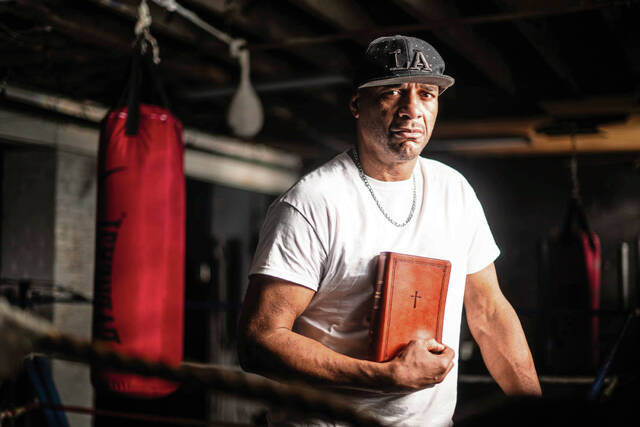Franklin Regional School Board members, administrators and parents on Wednesday continued their discussion about the district’s decision to pause the teaching of “Persepolis,” Marjane Satrapi’s award-winning graphic novel, in the ninth grade honors English class.
District officials said earlier this month that the school board’s curriculum committee wanted to make a closer examination of the book, following complaints to the district about its content.
The book — which was approved by the curriculum committee and the school board and was available for a month for review by any school parent who was interested — chronicles Satrapi’s childhood from age 6 to 14, as she lives through the Iranian Revolution and the authoritarian regime it produced.
Parents of several students in the freshman honors English course came to the school board’s March voting meeting to defend the book, and several returned to the district’s curriculum committee meeting Wednesday night.
“Books can take us to places we’ve never been and teach empathy,” said Heather Shoemaker, whose son is a student in the honors English class. “What will be challenged and maybe banned next? Why are we not trusting teachers to do what they know best? Sweeping uncomfortable topics under the rug is not the way to deal with them.”
Carla Williamson of Murrysville said she had read “Persepolis” and supported its removal from the curriculum.
“I was dismayed by the scenes of violence and torture,” Williamson said, before quoting a passage that included the F-word.
“Please excuse my foul language,” she said. “I don’t think it’s appropriate here, and I don’t think it’s appropriate in the classroom.”
Williamson said she believes the book “pushes a liberal ideology that does not belong in our school.”
Superintendent Gennaro Piraino said while a productive debate about the topics in a book such as “Persepolis” is important, it is part of a larger issue in education.
“We have some important work to do as we talk about curriculum, what our students read and how they’re taught to think,” Piraino said. “Is this book appropriate for ninth grade? That’s a discussion we can have, but it’s bigger than that. We can’t strip conversations, dialogue and discourse out of the curriculum.”
School board Scott Weinman said he has read “Persepolis,” and “whether I agree with some of the stuff in it or not, I appreciate what it offers, to see a story of someone growing up in another country.”
Kristy Trautman, whose daughter is in the honors English class, said exposure to different perspectives is what she wants from her school district.
“I love the conversations I hear happening in the back of my car,” Trautman said. “I thought the book was OK, and I can see how it would be engaging for kids. I thought there was a lot of critical thinking that can come out of this book.”
Parent Amy Sheridan of Murrysville said she doesn’t understand why the district would bow to pressure from parents over a book that was reviewed and approved.
“I’m not a fan of pausing planned, publicly approved curriculum,” she said.
Parent Sarah Hough agreed.
“We had a policy. It was followed,” Hough said. “I feel the book should be reinstated.”
Gretchen McGee of Murrysville said the covid-19 pandemic has brought parents into much closer contact with their children’s school curriculum, and that “there are underlying themes to a lot of what our children are being taught.”
McGee used examples from one of children’s school workbooks that explores a Black student who encounters racism from a white teacher, as well as a passage about a Chinese boy who is asked to disavow his father’s belief in communism.
“There is a lot that doesn’t align with what we are teaching our children at home,” McGee said.
Piraino said students engaging with a variety of serious issues does not equate to any kind of political indoctrination.
“We’re not preaching or teaching Marxism. We’re not teaching critical race theory, which is a college course,” he said. “I’m very proud of this community and the dialogue we’re having, and I want my son to have an opportunity to read about kids who don’t look like him or pray like him.”
The curriculum committee did not take any action on “Persepolis” at its meeting Wednesday evening. The next step in the process would be a committee recommendation to the school board about whether to teach the book.
More information about “Persepolis” is on Carnegie Mellon University’s “The Banned Books Project” website at bannedbooks.library.cmu.edu.








